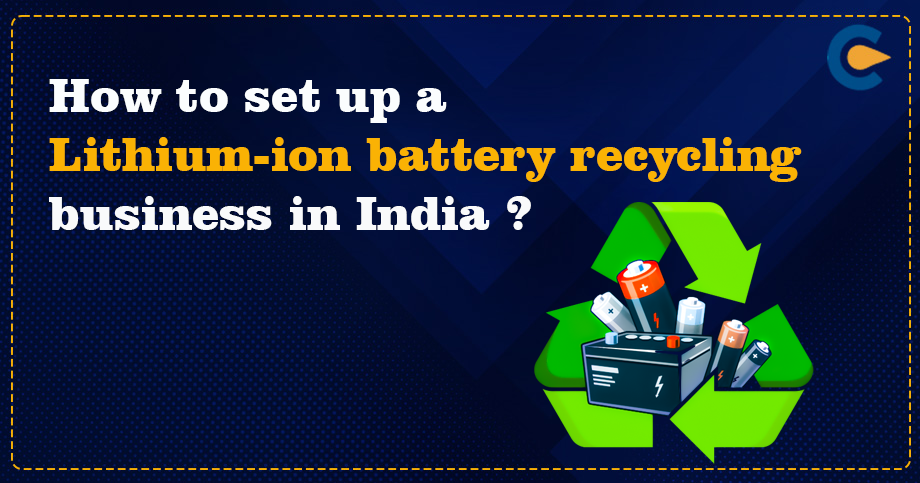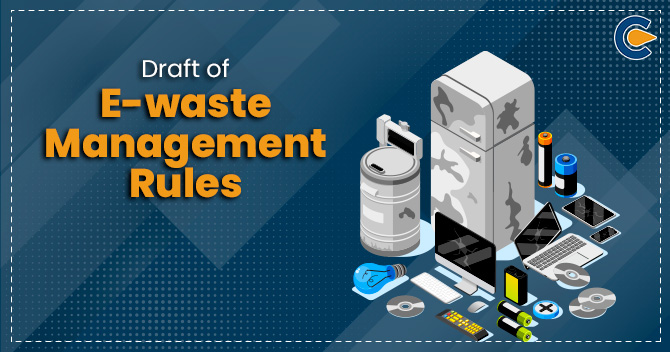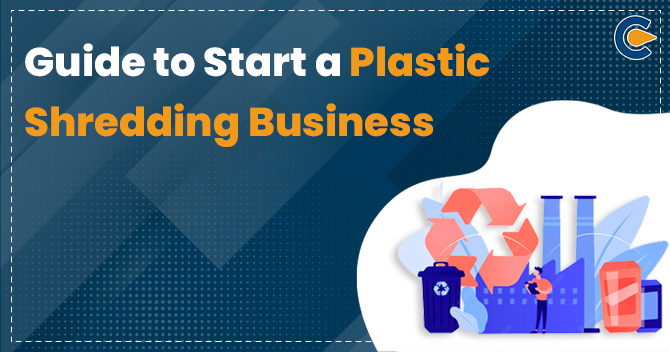An increase in electronic and Electrical equipment has augmented the demand for lithium-ion batteries, one of the most widely used batteries for EEE. Lithium-ion batteries contain the least amount of toxic chemicals compared to other batteries. Therefore, recycling lithium-ion batteries is also a most environmentally sustainable method that is regulated under the newly introduced Battery Waste Management Rules, 2022. This blog elaborates on the procedure of setting up a Lithium-ion battery recycling business in India.
Different Types of Batteries
Many different types of batteries are present, mainly divided into primary and secondary batteries.
|
Types |
Batteries |
|
Primary |
One that cannot be charged
|
|
Secondary |
One that is rechargeable
|
Composition of Lithium-ion Battery
Before starting in the lithium-ion Battery Recycling Business, one must understand what lithium-ion means. Lithium-ion Battery constitution may vary due to differences in size, cathode material and application. The lithium-ion battery contains many different chemicals of different compositions.
| Chemical | Composition (in percentage) |
| Lithium Cobalt Oxide | 27.5 % |
| Graphite | 16 % |
| Copper | 9% |
| Nickle | 4.3% |
| Steel | 20.2% |
| Polymer | 14% |
| Aluminium | 5.5 % |
| Electrolyte | 3.5% |
The life cycle of a battery is divided into eight simple steps. Which include: –
- Battery Use
- End of Battery life
- Battery Shredding
- Electrolyte recovery
- Cathode, Anode metals are separated
- Black Carbon removal
- Relithiation and recycling
- New Battery Manufacturing
Market Report
In 2020, it was accounted that roughly more than 5,00,000 metric tons of Li-ion batteries were discarded. This figure of waste lithium-ion batteries is reported to reach 1.2 million tons in 2025, and loading in seven-folds, it is projected to reach 3.5 million tons by the year 2030.
The state government of Delhi implemented an EV policy in August 2020. As per the EV policy, the state government aims to operate around 1000 Electric buses and more than 50% of public transport buses that are electric in the city. According to market analysis reports, the lithium-ion battery recycling market is anticipated to reach $38.21billion by 2030, recording a Compound Annual Growth Rate of 36.0% from 2021 to 2030. Because lithium-ion batteries have replaced other battery types, a new type of toxic waste has been produced. This has given rise to the Lithium-ion Battery Recycling Business, that reprocesses battery components and removes metals from them to be recycled in other products.
Benefits of Lithium-ion Battery recycling business
Setting up a Lithium-ion Battery recycling business serves a two-fold purpose that has numerous benefits to society. The most crucial purpose is to decrease battery waste and environmental damage caused by discarded lithium-ion batteries. The recycling of lithium-ion batteries reduces energy wastage as well as the emission of greenhouse gases. The recycling business related to lithium-ion Batteries also plays a part in the government initiative toward the circular economy where the recycling process recovers the technology and raw material to be used in other products saving a lot of money that is otherwise spent on the making of new batteries from scratch. Along with this benefit, the recyclers will also attract a lot of investors by starting the Lithium-ion Battery recycling business due to the rise in the demand for electric vehicles in the markets and the shift towards green technology.
Different recycling methods used by the Lithium-ion Battery recycling business
Lithium-ion batteries have different compositions due to differences in size or use. Therefore, there are also different recycling methods that are used by the Lithium-ion Battery recycling business, which have their own advantages and disadvantages.
| Recycling Method | Advantages | Disadvantages |
| Pyro metallurgical | This method of recycling has a straightforward procedure and is highly productive. Along with this, it also has industrial capacity. | The disadvantages of this method are that it uses high temperature hence consumes more energy, and also releases harmful gases as a by-product. |
| Bioleaching | This recycling process is more environmentally as well as cost-efficient. | But, this method requires long-term plating, which may possibly be attacked by pollution. |
| Hydrometallurgical | This is one of the most widely used methods, which requires less power consumption, and low waste but has high purity and emission rates. | Significant disadvantages of the Hydrometallurgical process include complex measures, pollution of contaminated water and excessive use of reagents, |
| Direct recycling | This is a simple process of recycling which have many advantages like low greenhouse, low energy consumption, and low pollution gas emissions. | Although this process have many advantages, its major disadvantage is that it is time consuming process. |
General Business Setup Licenses
Before acquiring and compiling environmental authorisation, the business has to acquire general licenses and authorisation from the concerned governmental authorities.
Some of these licenses are: –
Company license
For setting up a Lithium-ion Battery Recycling Business, one has to register according to the provisions of The Company’s Act, 2013, regulated by the Ministry of Corporate Affairs[1]
Documents required for establishing the for Lithium-ion Battery Recycling Business
- PAN Card;
- Address Proof such as
- Passport;
- Election Card or Voter Identity Card;
- Ration Card;
- Driving License;
- Electricity Bill;
- Telephone Bill;
- .Aadhaar Card;
- Residential Proof such as
- Bank Statement
- Electricity Bill
- Telephone Bill
- Mobile Bill
- GST Registration Certificate;
- MOA (Memorandum of Association);
- AOA (Article of Association);
Factory license
For establishing their manufacturing units, owners have to register their business under Factories Act. Under this, they are mandated to get a Factory license, which the Chief Inspector approve of the Labour Commissioner Organisation after examining the operation site as mandated under the Factories Act, 1948.
Documents need for Setting up Recycling Business
For the Factory license, the documents that are required are: –
- Form 1;
- Layout plan/site plan;
- Aadhar Card;
- List of directors;
- MOA;
- AOA;
- Partnership deed;
- Account Details;
- Commencement date;
- Payment receipt;
- Land deeds;
- Consent form from SPCB/PCC
- Details of Hazardous and Non-Hazardous waste
- Tax receipt
Udyog Aadhaar MSME Registration
MSME (Micro, Small and Medium Enterprise) registration is mandatory for small and medium enterprises that are granted by the Ministry of Micro, Small and Medium Enterprise, one must apply through the authority’s online portal and upload the mandated documents.
Documents needed for MSME registration to be submitted with the authorisation application
- ApplicantOfficial Name
- Name and type of enterprise
- Aadhar Card
- PAN Number
- The NIC Code
- Account Details
- The social category of the applicant
- The business operations of the enterprise
- Date of Incorporation of a business
- Details related to employment
BIS Certificate
BIS Certificate is required to ensure that the products do not adversely affect public health. Per the Bureau of India Standards, the Recycler has to send the samples to be tested to the recognised lab, the report of which will be analysed and scrutinised by the official personnel. Once the report is reviewed, the BIS certificate is granted.
Documents required for BIS Certificate for Lithium-ion Battery Recycling Business
- The list of raw materials that are being used during production
- A comprehensive layout/site plan
- A comprehensive clarification of the industrial procedure
- The particulars of the types of equipment being utilised
- A comprehensive depiction of the layout of the Plant
- The Test Reports of the recycled batteries that are to be issued stringently by a BIS Recognised Laboratory
- A complete photo of the Product
- A duly authorised Undertaking
- Identification Proof of the Applicant (Aadhar Card/PAN Card)
- Factory Authorisation Documents
- The submission form, which is accordingly complete and signed by the authorised personnel
GST Certificate
Document required for GST Certificate
- PAN Card
- CIN (Company Incorporation Certificate) from the Ministry of Corporate Affairs
- MOA
- AOA
- Applicant Adhaar Card
- Address proof
- Bank Details
Trade license for Lithium-ion Battery Recycling Business
A trade license is granted by Municipal Corporation for Lithium-ion Battery Recycling Business, which depends on the regulations set by the state. The documents required for Trade licenses are submitted along with the application.
Documents required for trade license for Lithium-ion Battery Recycling Business
- Address proof (Electricity bill or water bill)
- Aadhaar card
- PAN
- Memorandum of Association (MOA)
- Certification of incorporating (CIN) in case of Companies
- A most recent municipal property tax acknowledgement receipt in case the grounds are owned, or a consent letter or a lease document of the owner of the property where the business is registered.
- Layout plan/Site plan of the office
- NOC of the neighbours (nearby property owners)
Environmental Compliance for setting up for Lithium-ion Battery Recycling Business
Along with acquiring the general licenses and authorisation, Lithium-ion Battery Recycling Business also has to file for Environmental compliance, is regulated by the Central Pollution Control Board and governed by the Ministry of Environment, Forest and Climate Change.
EPR Authorisation for Lithium-ion Battery Recycling Business
EPR Authorisation is newly introduced for Lithium-ion Battery Recycling Business that is governed under Battery Waste Management Rules, 2022. Recyclers must apply to the Central Pollution Control Board online Centralised portal, which is submitted with the mandated documents. Once the application is submitted, it is revised and inspected by authorities, resulting which the Recycler is provided with the authorisation.
Documents required for acquiring EPR Authorisation
- EPR plan;
- Financial breakup for fulfilling EPR;
- Self-declaration as per RoHS;
- Copy of consent issued by the SPCBs/PCCs earlier in case of those recyclers who are working in the country before 01-10-2016;
- Particulars of upcoming awareness programmes and related initiatives;
- Copy of the approval from the relevant state/central
authority for marketing various products or for doing the Lithium-ion Battery
Recycling Business as given below:
- TIN details;
- PAN details;
- Incorporation certificate;
- Copy IEC;
- TIN details;
- Copies of contract documents with other Stakeholders like Manufacturers, collection centres, dismantlers, dealers, treatment, storage and disposal facilities (TSDFs) etc.
Specifics of EPR (Extended Producers’ Responsibility) form as per Battery Waste Management Rules, 2022
- Producer’s/Recyclers Name
- Registered address of Producer, official website address and contact information
- Name of the authorised entity and whole address with official e-mail, landline telephone number and mobile number
- Tax Identification Number
- Copy of GST Certificate
- Different Battery Types placed in the market name of the brand:
- Industrial Battery
- Portable Battery
- EV Battery
- Automotive Battery
Consent Certificates
- CTE (Consent to Establish) is acquired by a Lithium-ion Battery Recycling Business owner before the industry is established under the Air and Water (Prevention and Control of Pollution) Act
- CTO (Consent to Operate) is acquired by a Lithium-ion Battery Recycling Business owner after the industry is established and is ready to start the manufacturing process under the Air and Water (Prevention and Control of Pollution) Act
The process of both CTE and CTO is mandated under the Air and Water (Prevention and Control of Pollution) Act, which has the identical steps of the authorisation process where the form is submitted through the online portal of the concerned Pollution Control committee/The State Pollution Control Board with the approved documents which are followed by a review of an application. After that, an authorised government official conducts a site inspection and makes the report according to the inspection, and at last, the certificate is granted.
Documents required for consent certificate
- SSI Certificate;
- Industry Department Certificate;
- The layout plan/Site plan;
- Details on channelisation;
- Total open land
- Total constructed area
- The project report
- Water usage breakdown
- DG Specifications
- Raw material list with daily MTD/monthly quantity
- Effluent / Sewage Treatment Plant Flow Diagram
- Boiler type, fuel used, and quantity
- Specifics on air pollution controls
- Product/by-product list with daily MTD/monthly quantity
- Permission from the state’s groundwater authority.
- Factory/Trade License
- Authorisation Letter
- Pan Card
- The Aadhar Card
- Municipality or Industry license
- Registration Proof of unit
- Site Plan
- Water Bill
Hazardous Waste Authorisation
The registration relating to the Management and regulation of hazardous waste, including the recycling of Lithium-ion battery recycling business, is regulated under The Hazardous Wastes (Management, Handling and Transboundary Movement) Rules, 2008.
Documents required for submission
The documents which are compulsory while applying for hazardous waste Authorisation are: –
- CTO;
- Certificate of incorporation (CIN)/LLP;
- CTE;
- MOA (Memorandum Of Association);
- AOA (Article of Association);
- Board resolution for appointing an authorised person;
- Aadhar card;
- PAN copy;
- Layout Plans;
- GST certificate of business;
- Rent/proof of ownership;
- Factory license/Trade license
The recycling process used by the Lithium-ion battery recycling business
The Lithium-ion battery recycling business is focused on reprocessing consumed lithium-ion batteries into brand new batteries. This process often involves deconstructing lithium-ion batteries and splitting their many components to reuse them in a new battery.
The process of recycling Lithium-ion batteries has many steps. First, all spoiled or faulty batteries are detached from rotation by sorting them out from operative batteries. Following this, all elements in each lithium-ion battery that are being recycled must be recognised, frequently requiring an amalgamation of inductively coupled plasma spectrometry and optical microscopy. Most regained cathodes can be detached into cobalt, which is recycled to make new electrodes, copper, nickel and iron. Sorting out these metals is relatively easy; they have more diverse densities than other components of the battery; therefore, they float to different measures of a mixture as it’s heated up to its melting point. This obtained liquid metal alloy is then transferred into moulds that have a similar structure as small plates (usually with holes cut through their centres) and hardened into shapes that can be fitted inside fresh batteries. Finally, lithium is required to be reclaimed: You mix it with mineral acids— hydrochloric acid or sulphuric acid —and electrolyse it. The electrolysis pulls out pure lithium that sells back to Recyclers.
|
Lithium-ion Battery Recycling Process |
|||
|
First |
Second |
Third |
Fourth |
|
The Lithium-ion Batteries from waste Electronic Devices like mobiles, laptops and Electron Vehicles are extracted. |
Then, the extracted lithium-ion batteries go through the hydrometallurgical recycling business. |
The metals like nickel, manganese, lithium and cobalt are extracted through this recycling process. |
At Last, the metals extracted are used again in the manufacturing energy storing system, pigments, paint etc. |
Economic Aspect of Setting up Lithium-Ion Battery Recycling Business
The cost of setting up a Lithium-ion Battery Recycling Business is demarcated into eight divisions. Those are: –
- New Battery
- Waste Treatment which is regulated by government authorities under Extended Producers’ Responsibility
- Depreciation
- Auxiliary Materials which would include Machinery and equipment
- Labor
- Taxes
- Electricity
- Maintenance
For recycling cost of Lithium-Ion Battery, capital expenditure is CAPEX and operational expenditure that is OPEX are considered. Therefore to reduce the overall cost.
Lithium-ion Battery Recycling Business, instead of having separate drops off of recycling Lithium-ion Batteries the business owner can collect the waste in the form of dumpsters which is less costly as it will decrease the necessary workers for the task and their fees.
Second, since there are several government initiatives that are involved, one can take help from the government for establishing Lithium-ion Battery Recycling Business.
Government support can give you subsidies and let you have loans at lower costs too.
But to avail of the above benefits, Lithium-ion Battery Recycling Business must acquire the required licenses and environmental compliance.
Conclusion
Lithium-ion battery recycling business recently, with the increase in the use of Electronic and Electrical equipment, has proven to be very lucrative, with the global recycling market growing at a Compound Annual Growth Rate of 19.6 per cent with the expected estimate of 22.8 billion dollar by 2030. Because of this and many other advantages of this business, government also provide many subsidies and initiatives given that the recycling business is authorized.
Read our Article:Potential of Lithium-ion Batteries in India











